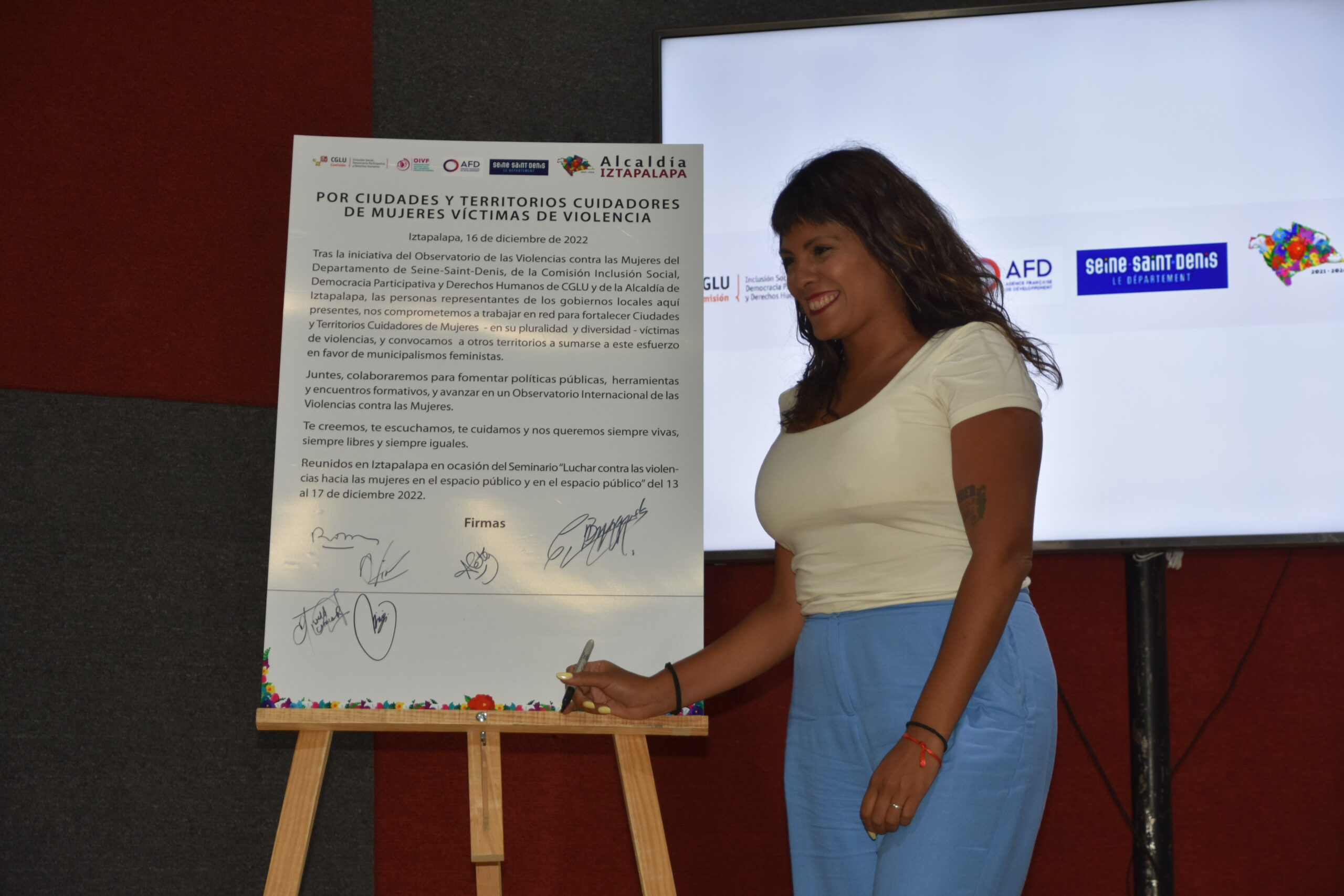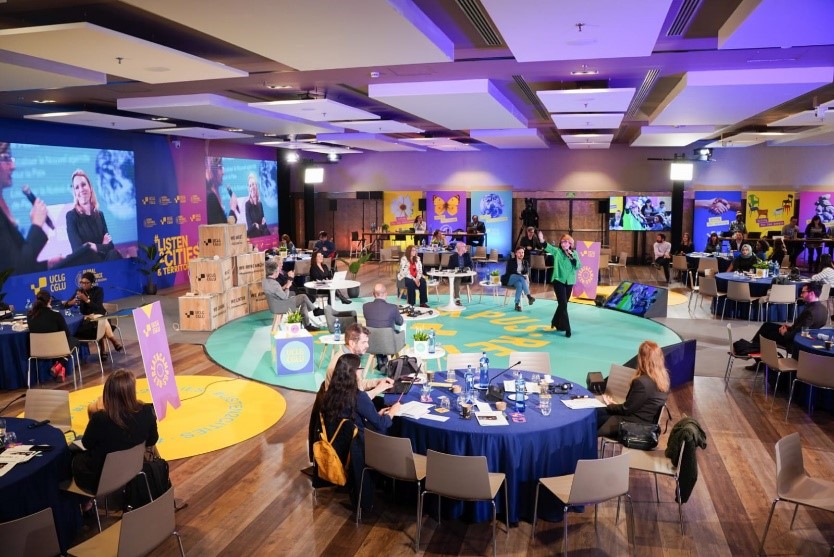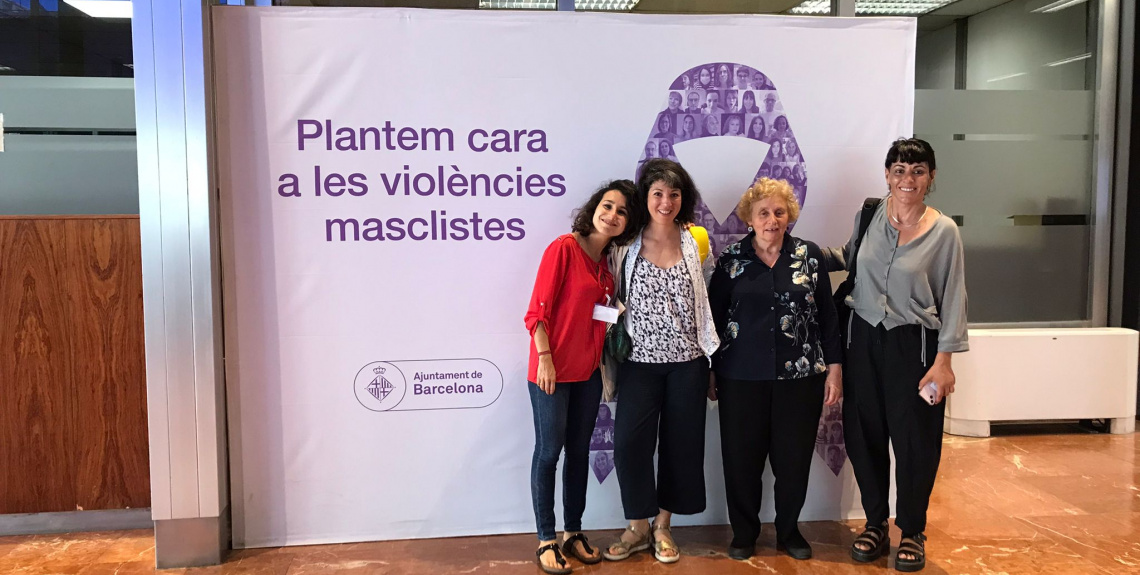Economic Empowerment of Women: A Lever in the Fight Against Domestic Violence
On the occasion of International Labour Day, it is important to highlight initiatives aimed at promoting the economic empowerment of women as an effective means to combat violence against women. These initiatives, deployed worldwide, are essential to support women victims of violence and help them regain their financial and professional independence.



Domestic violences have serious consequences on the physical and mental health of women who experience them. But beyond these direct consequences, they also affect their autonomy on social and economic levels, isolating women and limiting their ability to work and meet their needs. This form of violence exerts a control that restricts women’s economic independence, sometimes depriving them of their own income, financial management, or even the opportunity to work.
When women find themselves economically dependent on their abuser, socially isolated, and often indebted, they lack the financial resources to leave the violent partner. It is therefore important to integrate women’s economic empowerment into strategies to combat domestic violences, to help them regain control over their lives and finances.
According to UN data from 2023, internationally one in ten women live in extreme poverty, and if current trends continue, nearly 342.4 million women and girls will remain trapped in this situation by 2030[1].
In the world, most women work in the informal economy, holding precarious and poorly paid jobs, exposing them to financial insecurity[2]: 60% of jobs held by women worldwide are informal, and this figure reaches 90% in low-income countries[3].
Recently, access to employment and financial autonomy for women has been at the forefront, especially in countries that have ratified the International Labour Organization’s Convention on the Elimination of Violence and Harassment in the World of Work. This convention recognizes the impact of domestic violence on employment, productivity, health, and safety of women, and calls for measures to address it.






Some practices implemented by our partners in the International Observatory of Violence Against Women network address these issues and deserve to be highlighted. For example, the REFELA Gambia network with the African Union for Employment promotes entrepreneurship and training in sexual and reproductive health. Network members pay special attention to investing in youth, recognizing the crucial role of young women in the country’s development.
On the other hand, the Departmental Council of Ziguinchor in Senegal offers professional training in areas such as hotel trade and tailoring. These programs aim to strengthen women’s skills and help them access paid employment. They also seek to identify and support young female leaders, providing them with a platform to share their experiences and successes with other young women.
In Palestine, the Observatory of Violence Against Women in Jenin has created an economic support section for women, allowing them to sell their products and generate income. Practical training is also provided, offering women skills to earn an income.
- To see the activities carried out by Jenin women during the war: click here
In the Comoros, the association Les Hirondelles, a partner of the Observatory of Violence Against Women in Ngazidja, offers training in sewing and cooking for girls and women, while providing temporary employment opportunities during festive periods. These initiatives allow women to meet their needs and achieve financial independence while strengthening their position in society.
Therefore, it is essential to develop policies and programs that promote women’s employment and ensure decent wages to favor their financial autonomy.
[1] UN Women, Progress on the Sustainable Development Goals: The gender snapshot 2023, p.13, 7 September 2023. Accessible here.
[2] World Bank, Participation of women in the labour market, 10 January 2023. Accessible here.
[3] International Labour Organization (ILO), Women and men in the informal economy: A statistical overview, third edition, 2018. Available here.
Observatory on Violence against Women of Seine Saint Denis (Seine-Saint-Denis)
CGLU (Barcelone)
Palestine
Comores




As part of the program “Territories protecting women victims of violence,” the Observatoire international des violences...
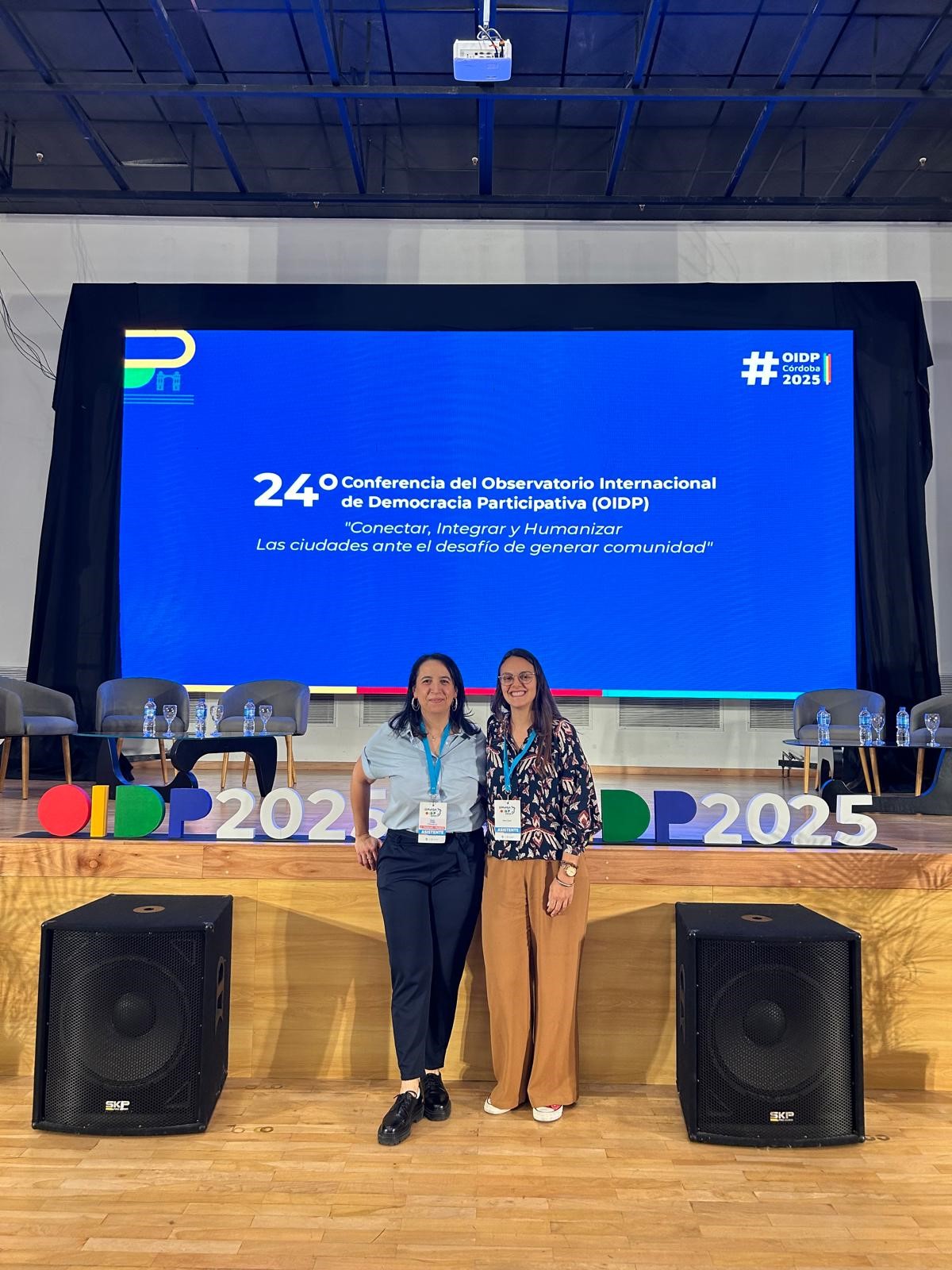

A delegation from Seine-Saint-Denis attended the 24th Conference of the OIDP held in Córdoba in May.
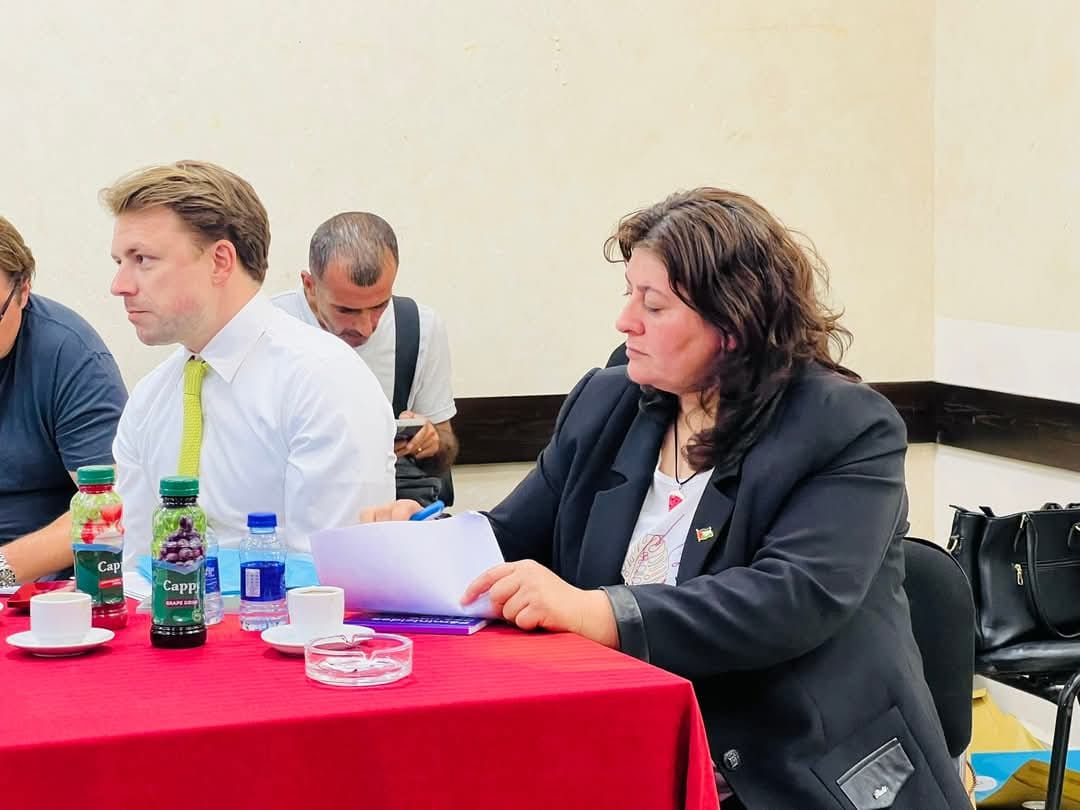

During our meeting on June 11, 2025, Mayssoun Dawoud, head of the Observatory on Violence Against Women in Jenin, shared the...
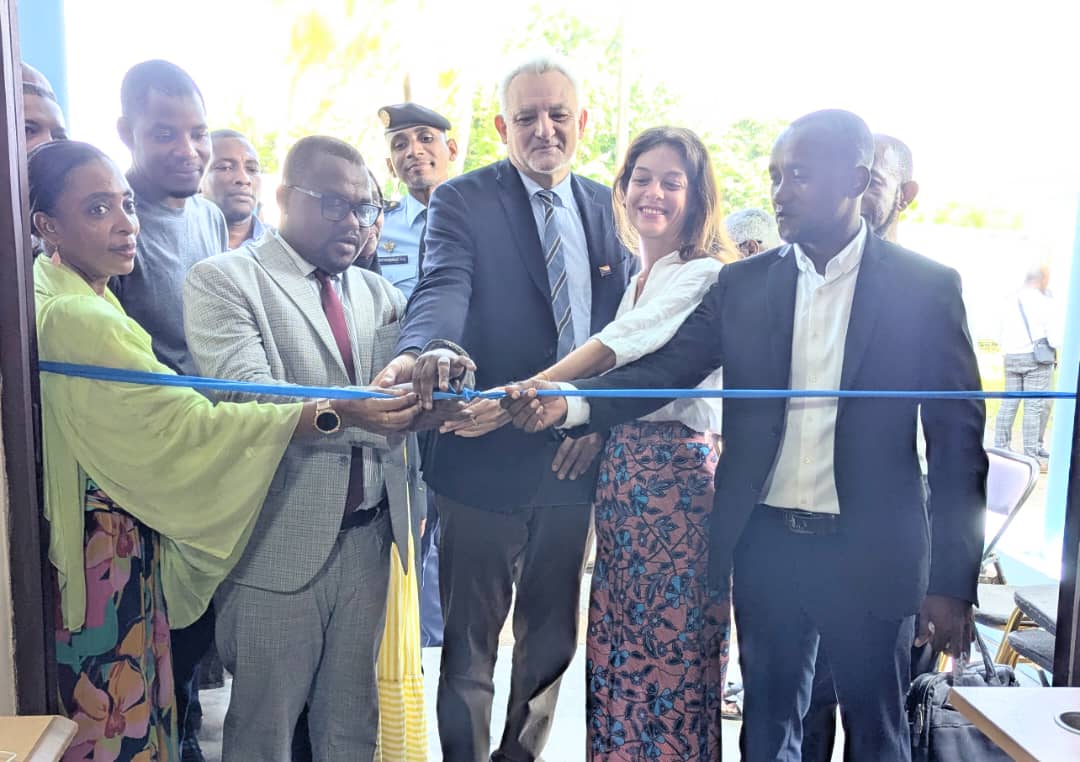

After a challenging year in 2024—marked by the election of a new governor for the Autonomous Island of Ngazidja and a cholera...
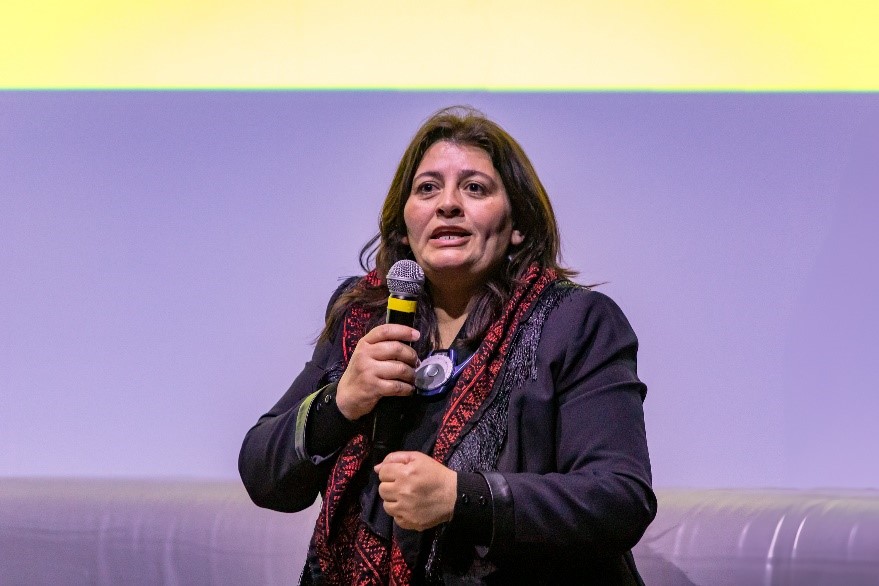

For over a month, the refugee camp of Jenin in the West Bank has been under Israeli siege. The humanitarian situation is...











On the occasion of the International Day of Zero Tolerance for Female Genital Mutilation (FGM), it is crucial to highlight that...
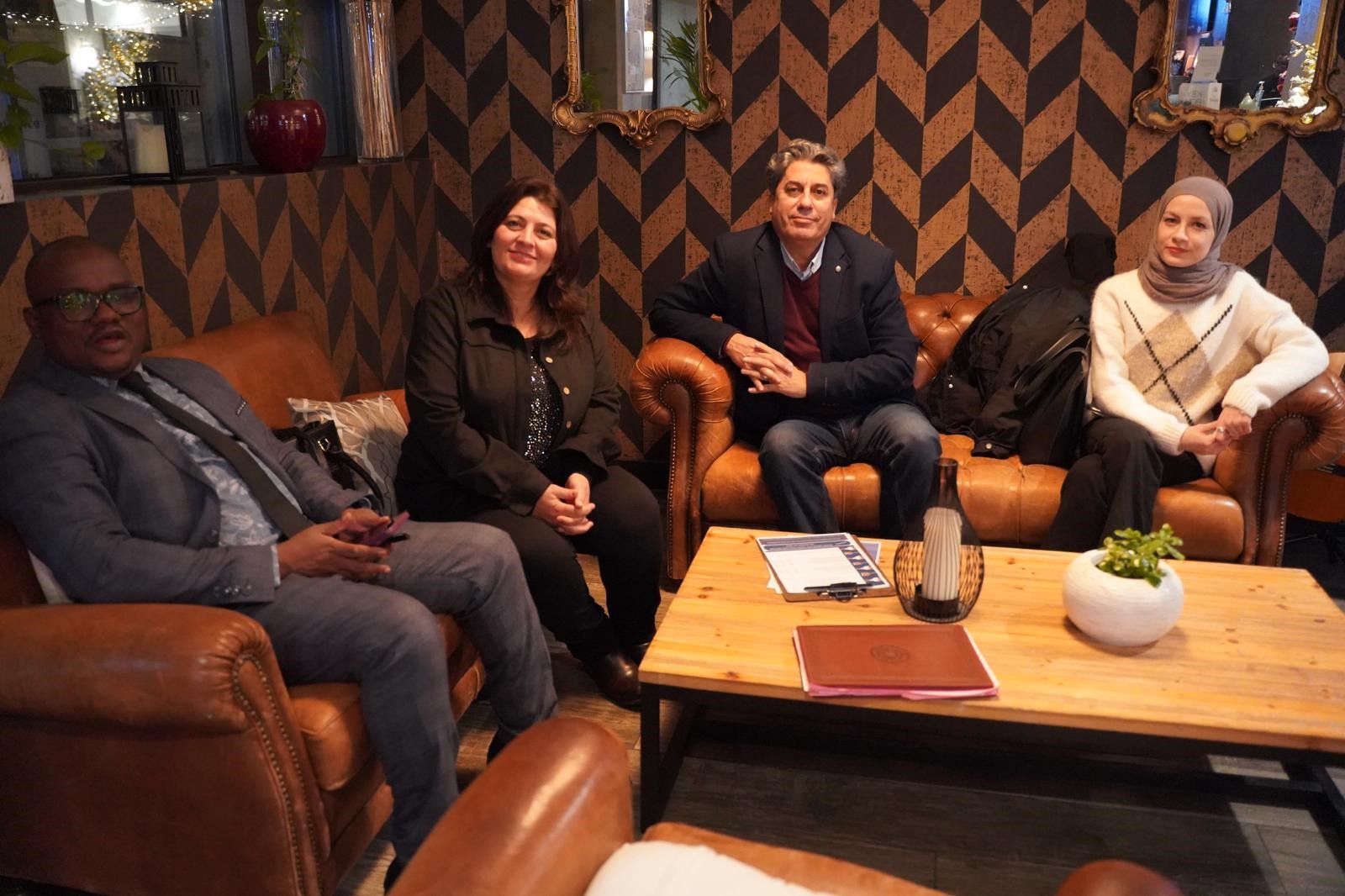

While Israel and Hamas announced on Wednesday, January 15, 2025, an agreement for a ceasefire in Gaza, accompanied by the release...
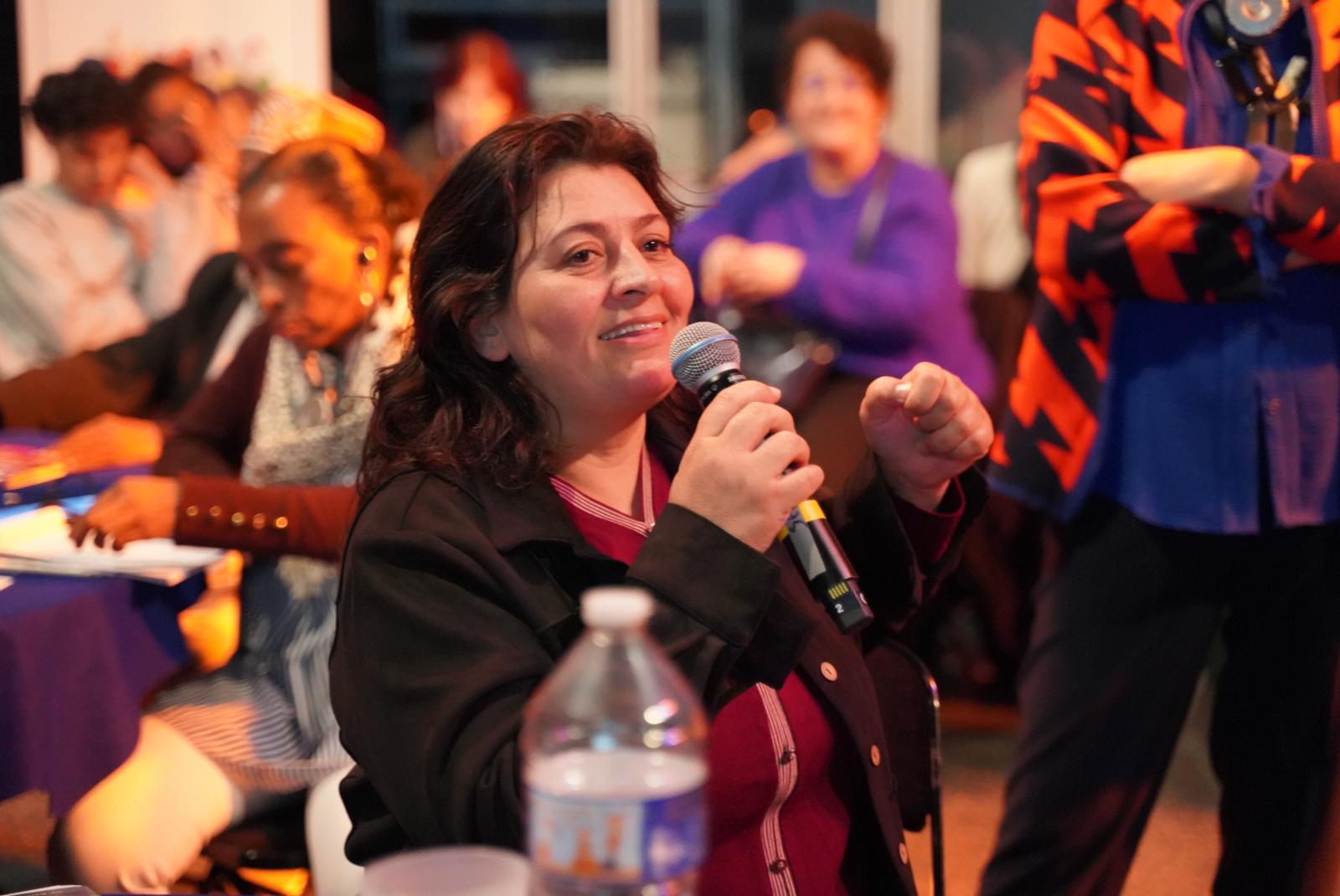

During our exchange on December 17, 2024, Mayssoun Dawoud, head of Jenin's Observatory of Violence against Women, testified
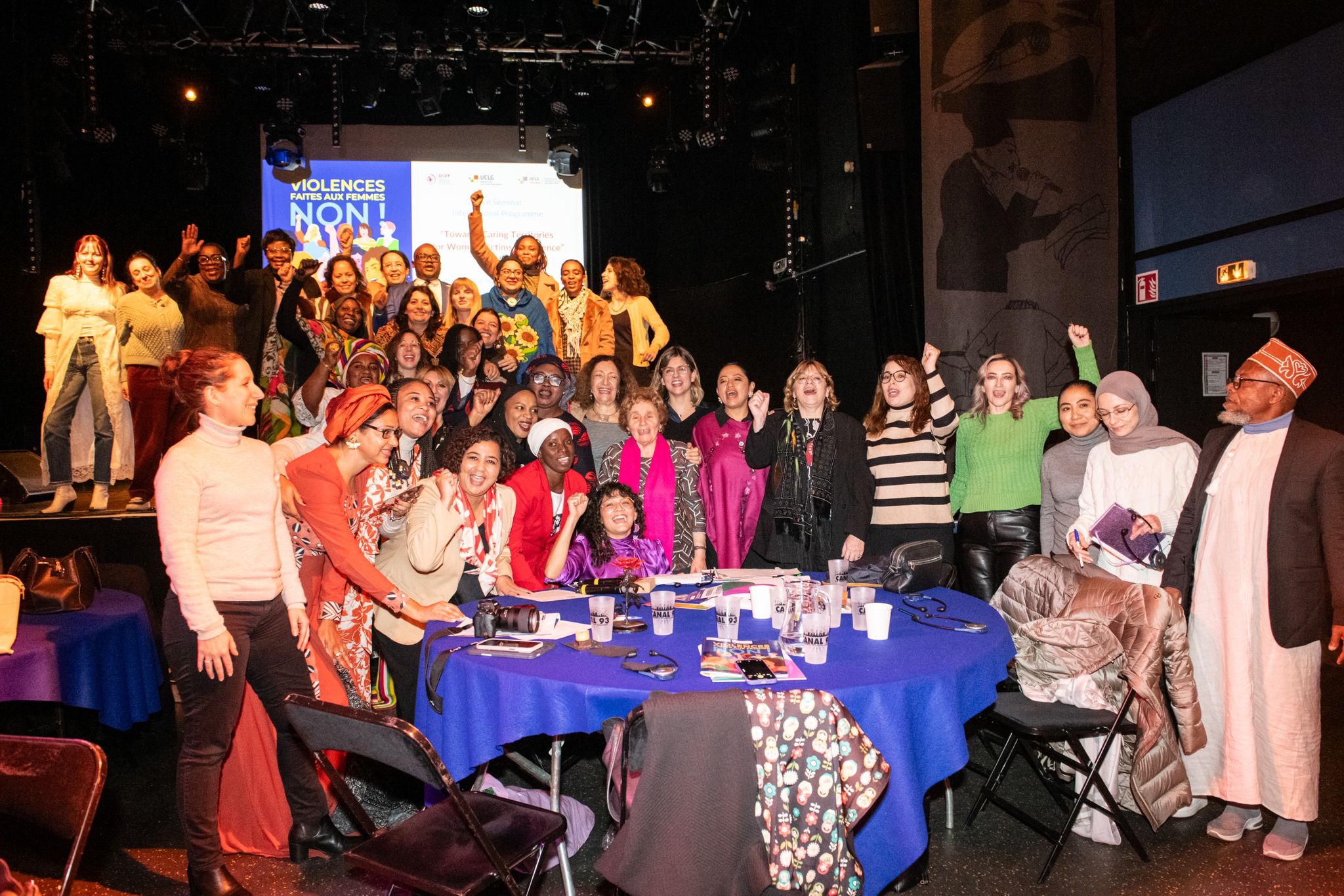

Over 50 Local Leaders and Experts Gather in Seine-Saint-Denis to Highlight the Role of Local and Regional Governments to #EndVAW
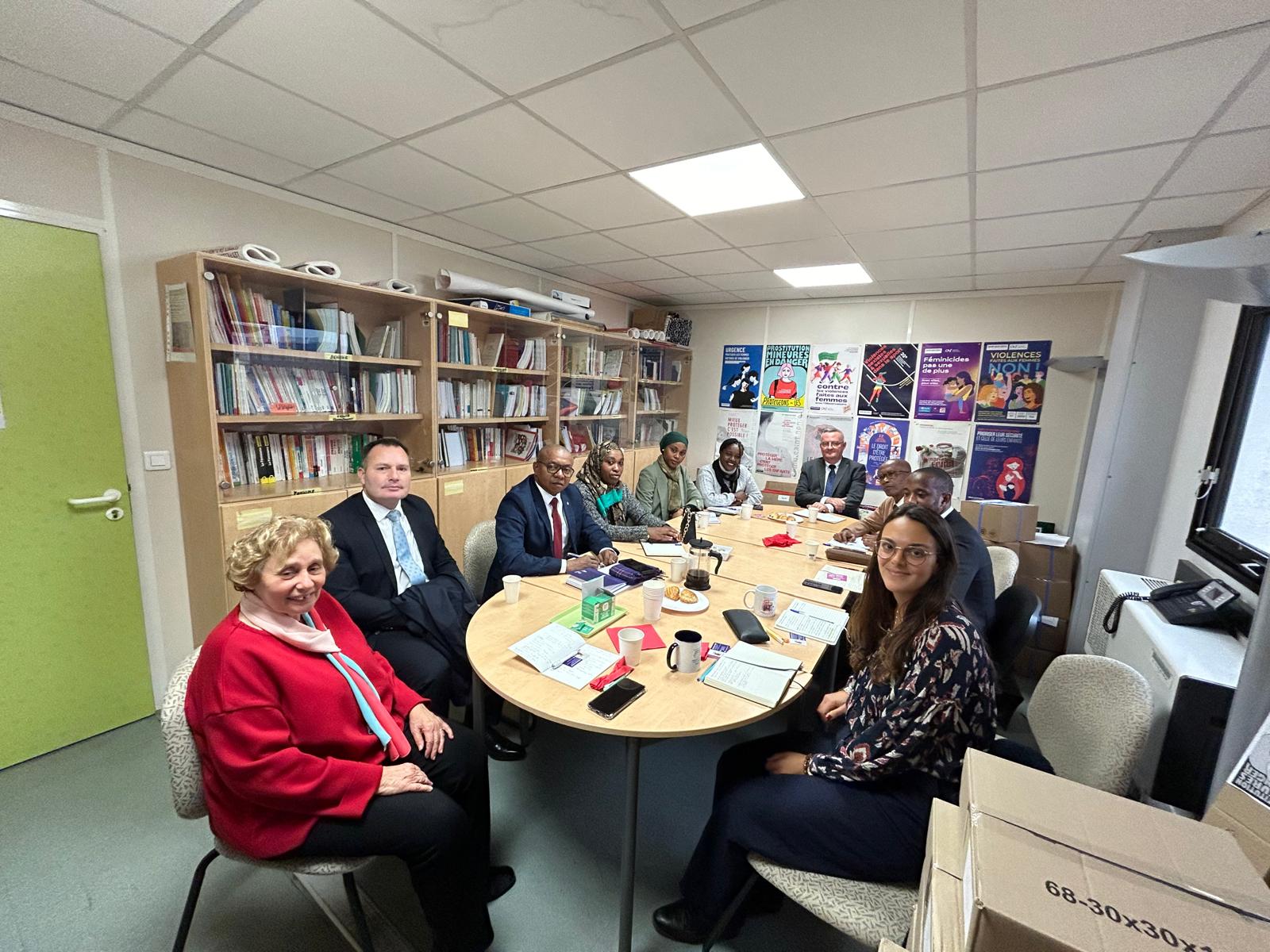

On November 15, 2024, the Observatory on violence against women welcomed a Comorian delegation composed of actors committed to...
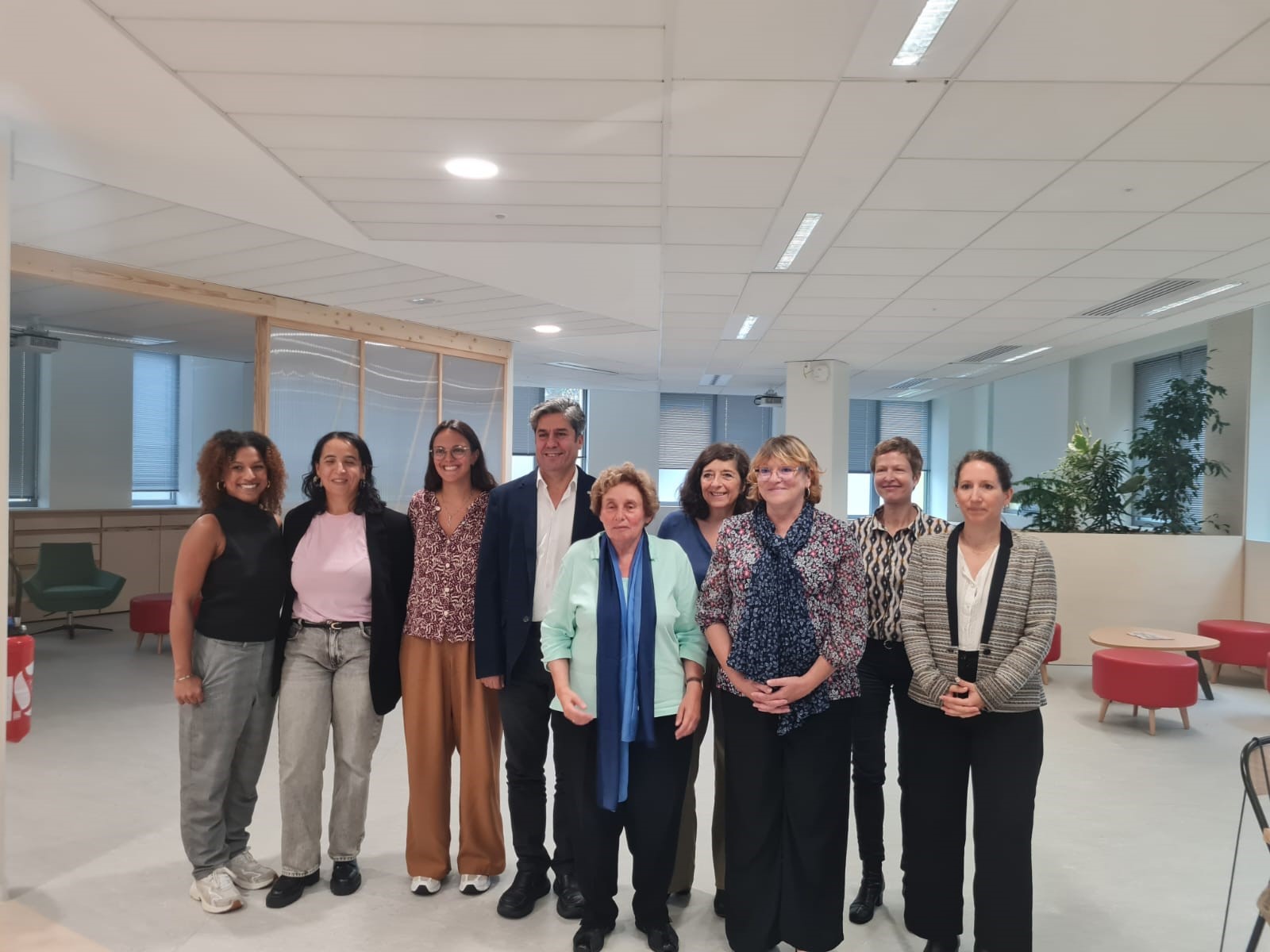

On September 5th, in the absence of the mayor of Jenin, who was held back by the Israeli offensive in his town, the mayors of...











On the occasion of the International Day of the Girl Child, celebrated on October 11, the International Observatory on Violence...


During our weekly meeting on August 8, 2024, Maysoun Dawoud, Head of the Observatory of Violence Against Women in Jenin, shared...




As part of its program "Territories that protect women victims of violence" the International Observatory of Violence Against...


As part of the project "Territories that Protect Women Victims of Violence," the International Observatory on Violence Against...
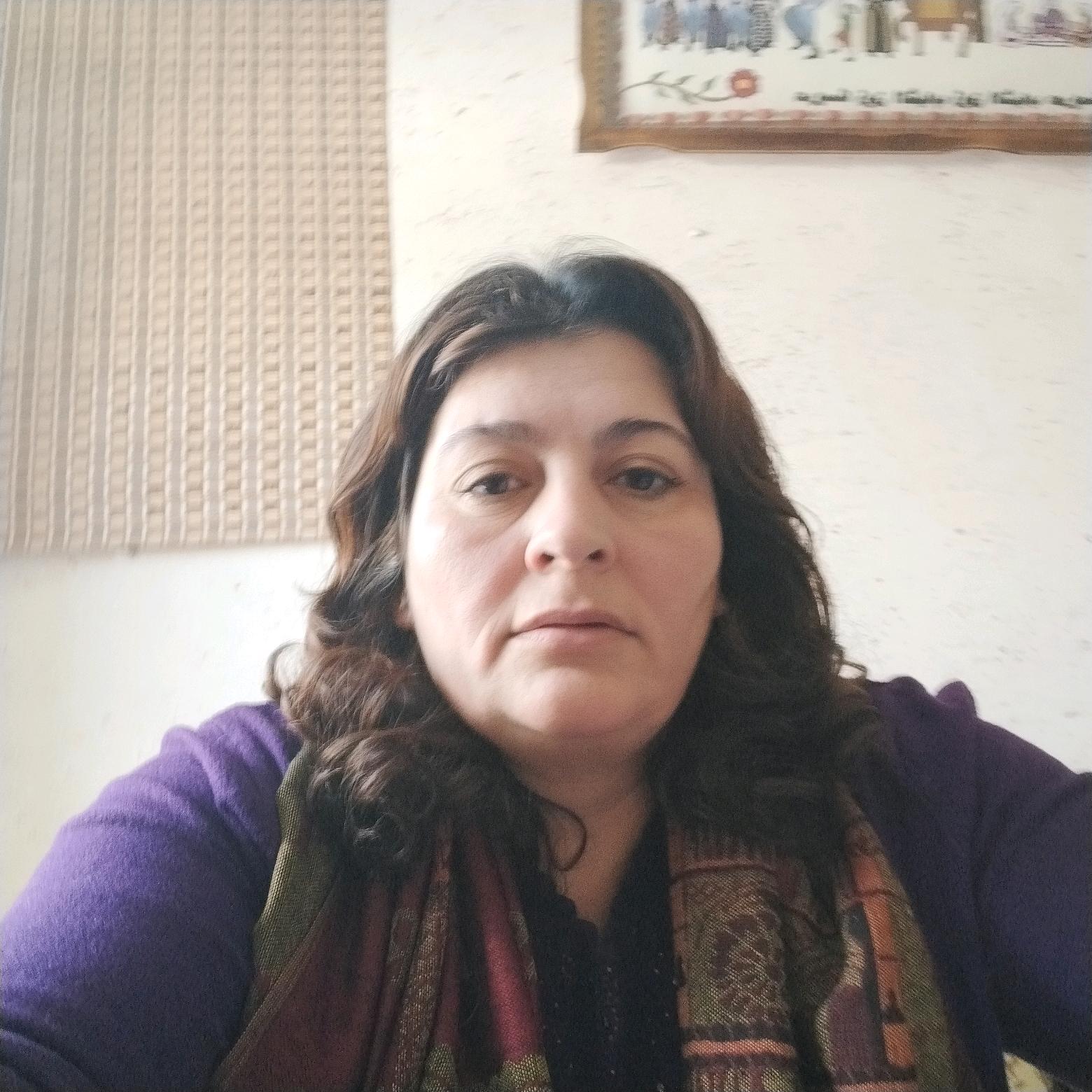


During our weekly meeting on July 9, 2024, Mayssoun Dawoud, Head of the Observatory of Violence Against Women in Jenine, shared...
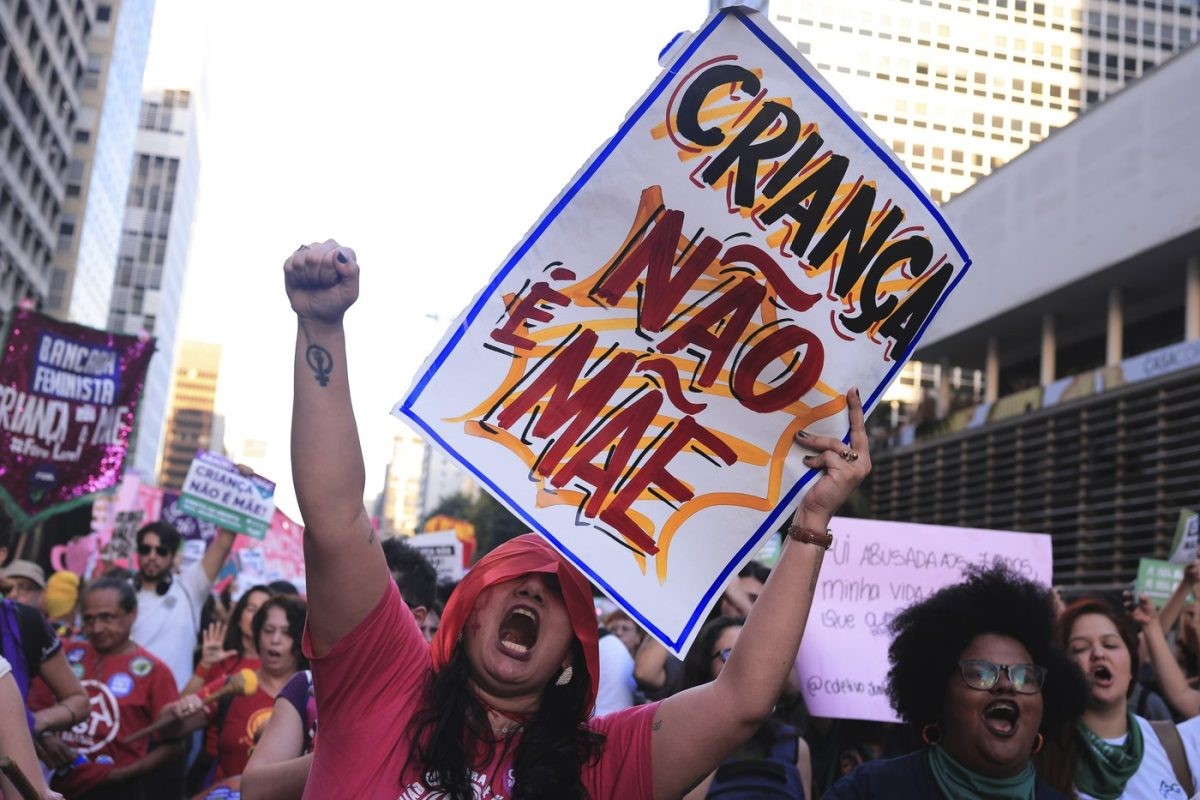

Thousands of people protested on Thursday, June 13, in several cities across Brazil against a bill being examined by Congress...
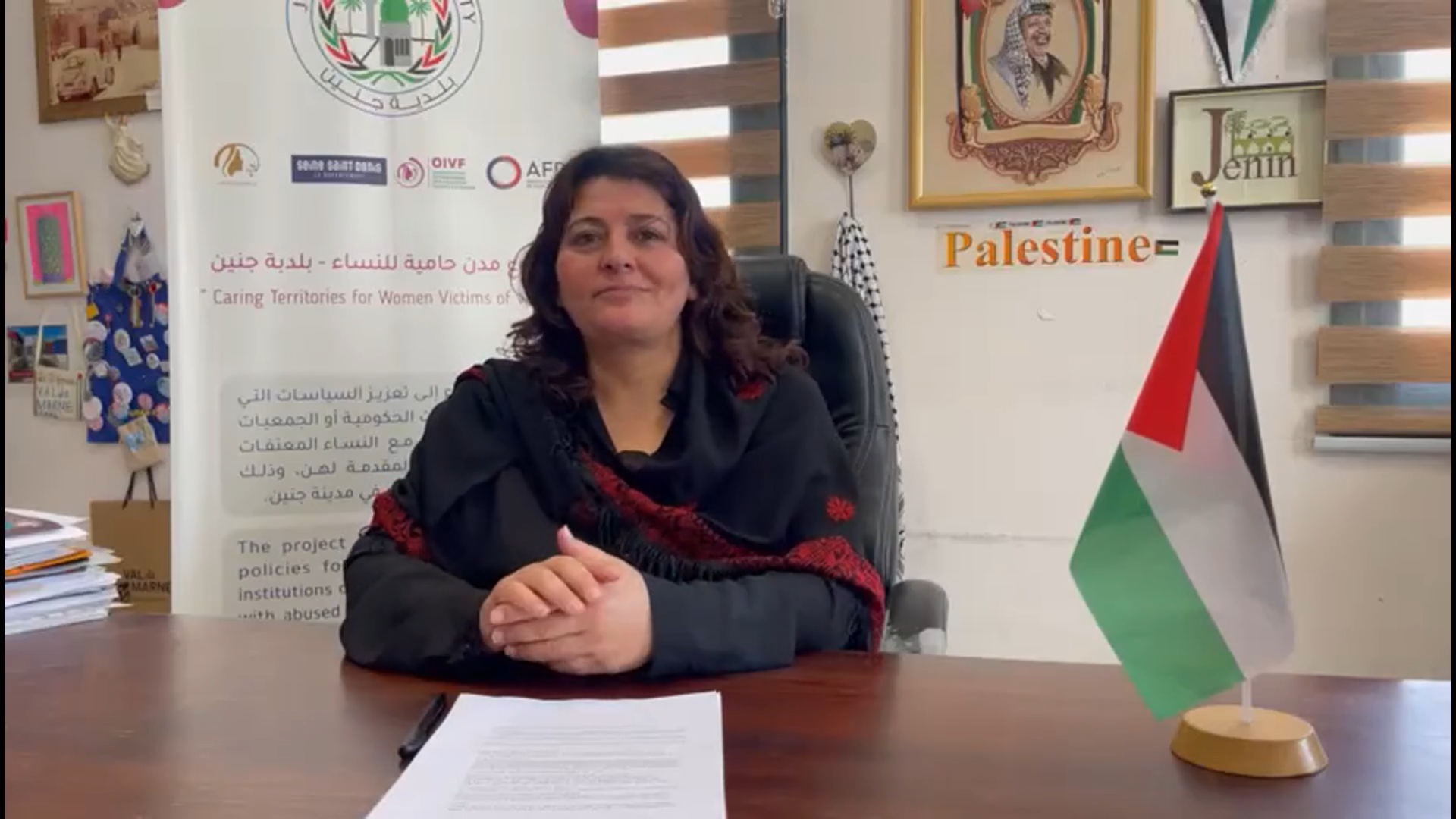


During our weekly meeting on May 30, 2024, Mayssoun Dawoud, Head of the Observatory of Violence Against Women in Jenin, shared...
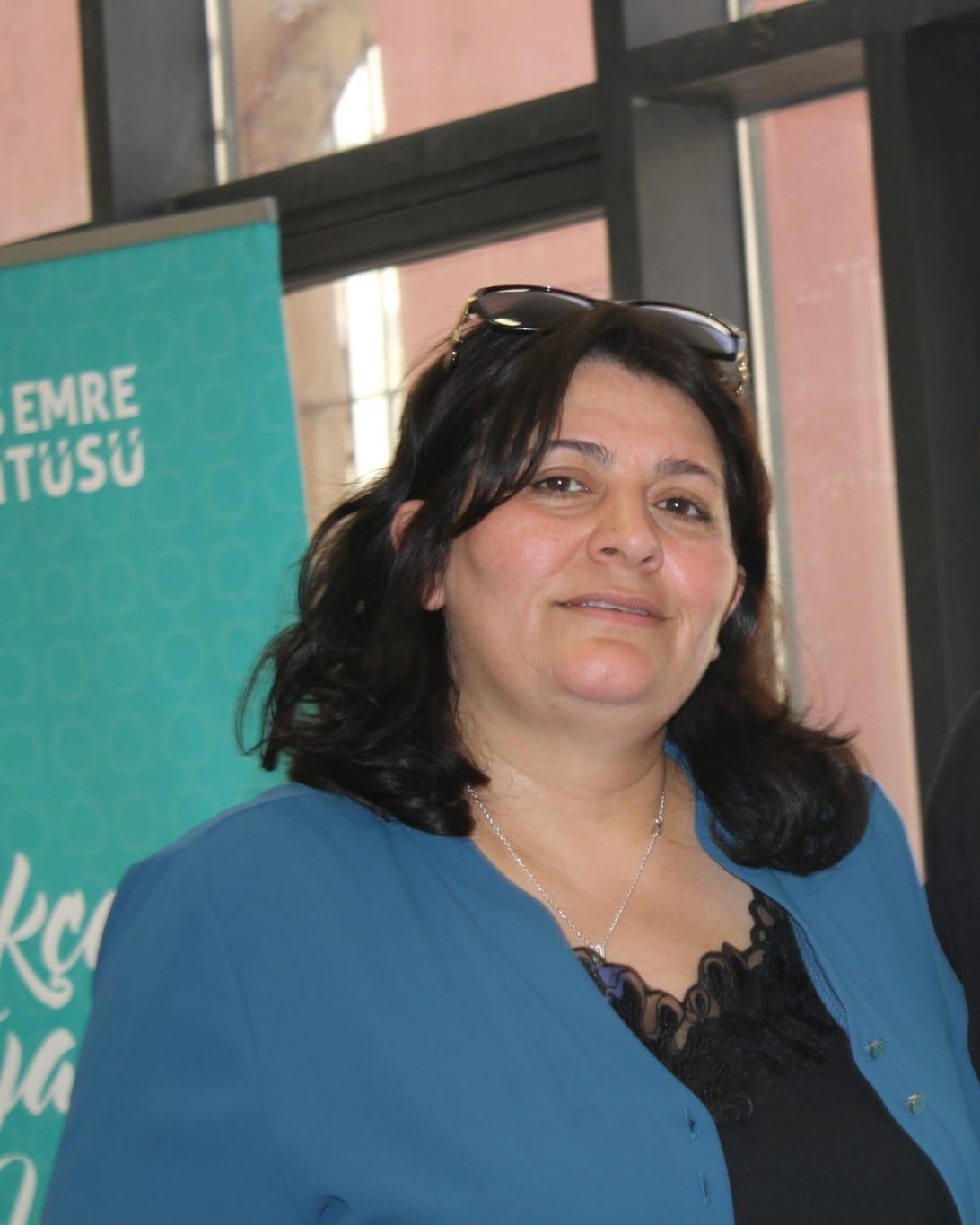



During our weekly meeting on May 16, Mayssoun Dawoud, Head of the Observatory for Violence Against Women in Jenin, shared...
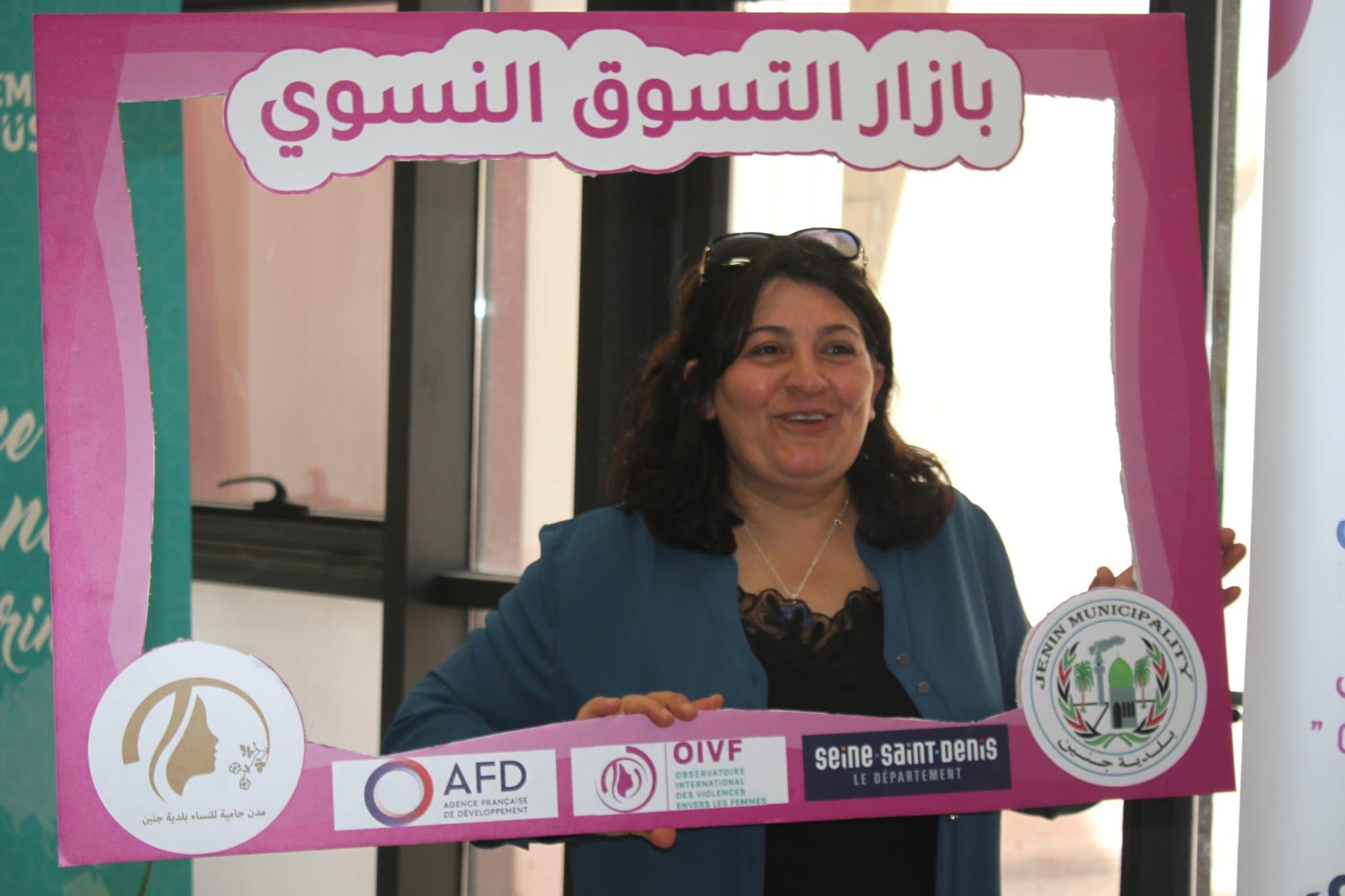


During our last two weekly meetings, Mayssoun Dawoud, Head of the Women's Violence Observatory in Jenin, shared information about...



On the occasion of International Labour Day, it is important to highlight initiatives aimed at promoting the economic empowerment...



During our weekly video conference on 4 April, we shared information on the situation in Jenin. Maysoun Dawoud, Head of the Jenin...
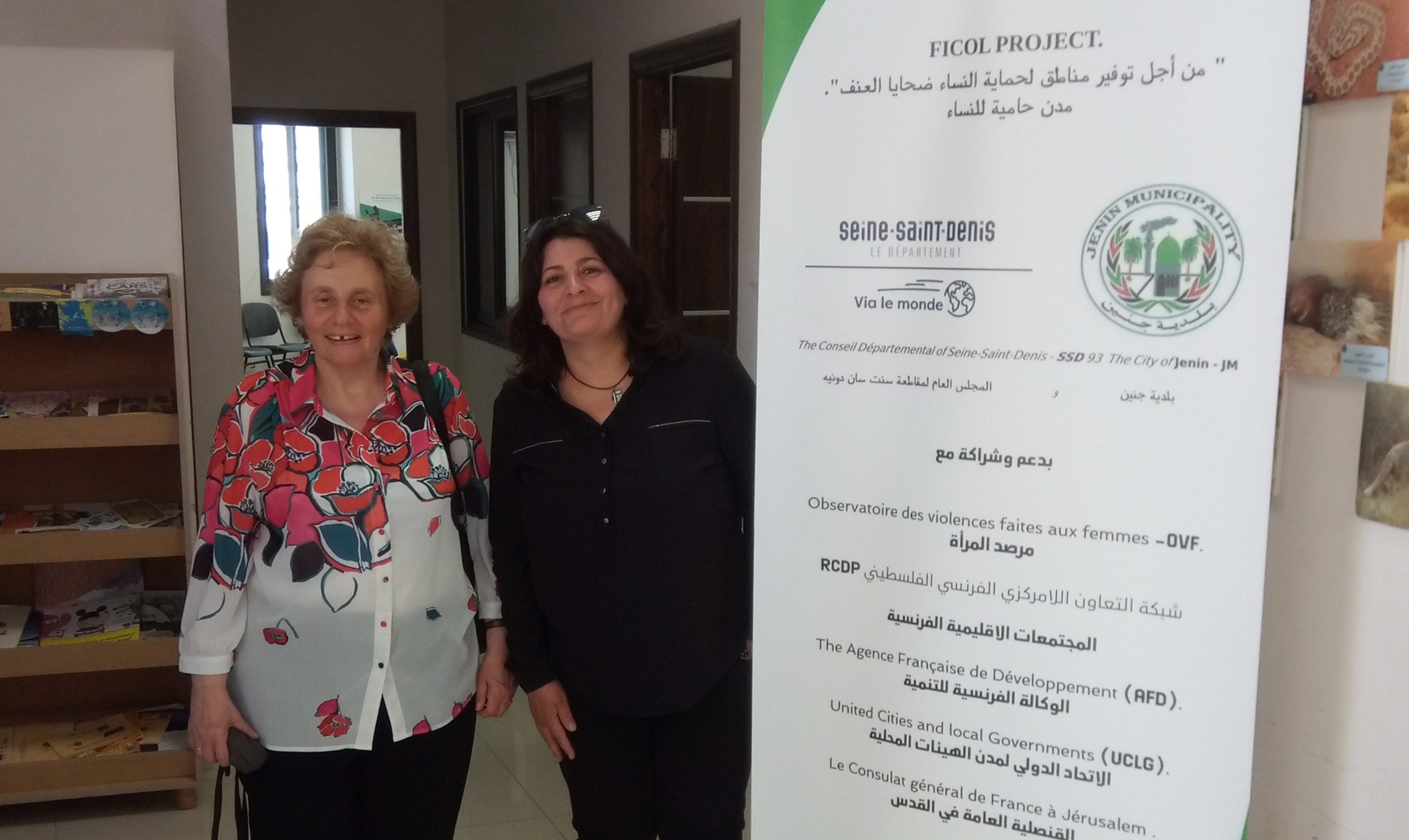

As part of the project “Territories protecting women victims of violence”, the International Observatory on Violence against...
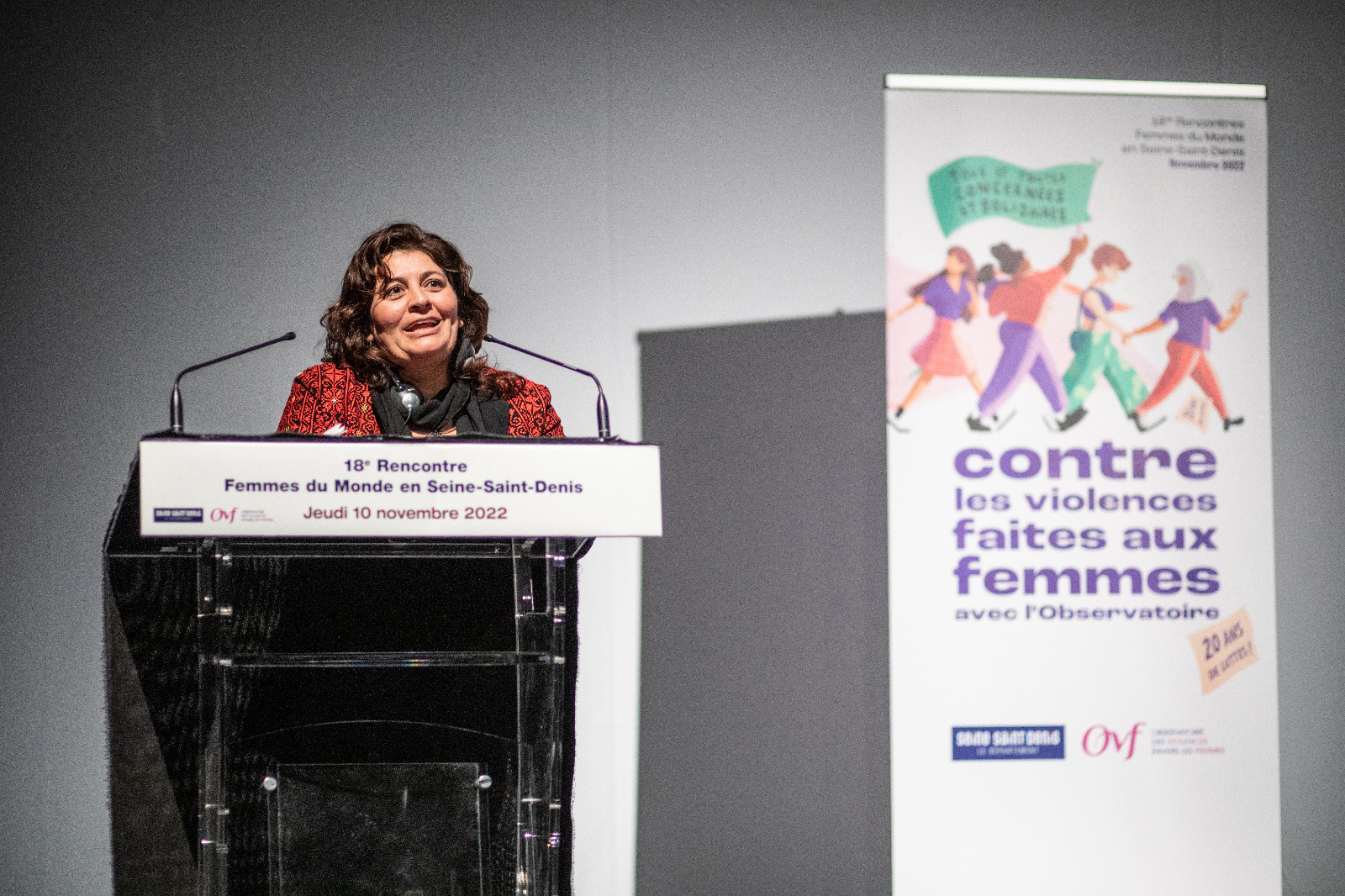

During our weekly video call on March 21st, Mayssoun Dawoud, Head of the Observatory for Violence Against Women in Djenin, shared...




During a telephone conversation on March 13, we received alarming information about the situation in Djénine. Mayssoun Dawoud,...


On this March 8, 2024, we would like to express our solidarity with all women and girls who are victims of violence in times of...
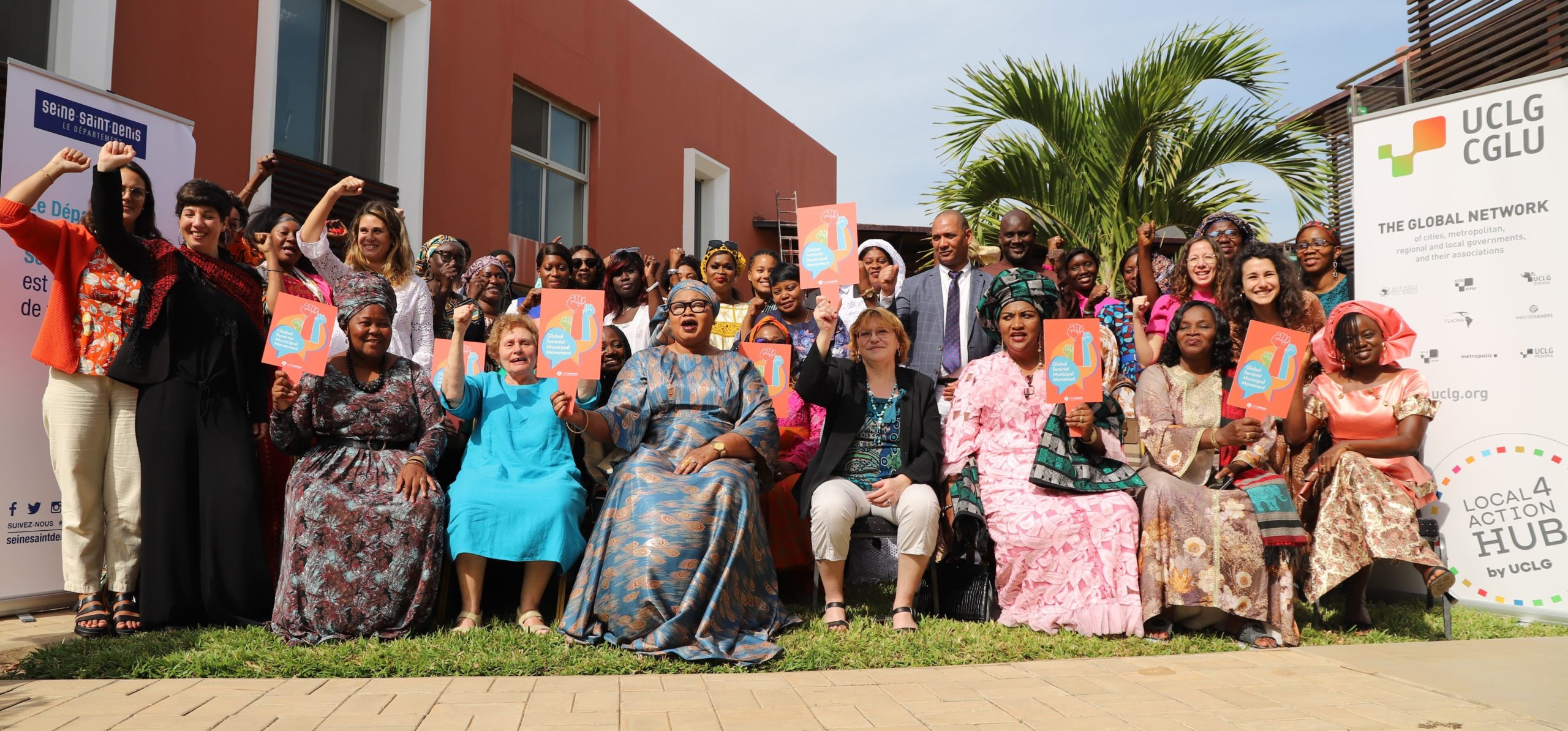

A look back at the seminar entitled "Territories protecting women victims of violence", organised by the International...




During our weekly video conference meeting with Palestine on February 8th, Mayssoun Dawoud, Head of the Observatory for Violence...











The International Observatory on Violence against Women is committed to combating female genital mutilation.
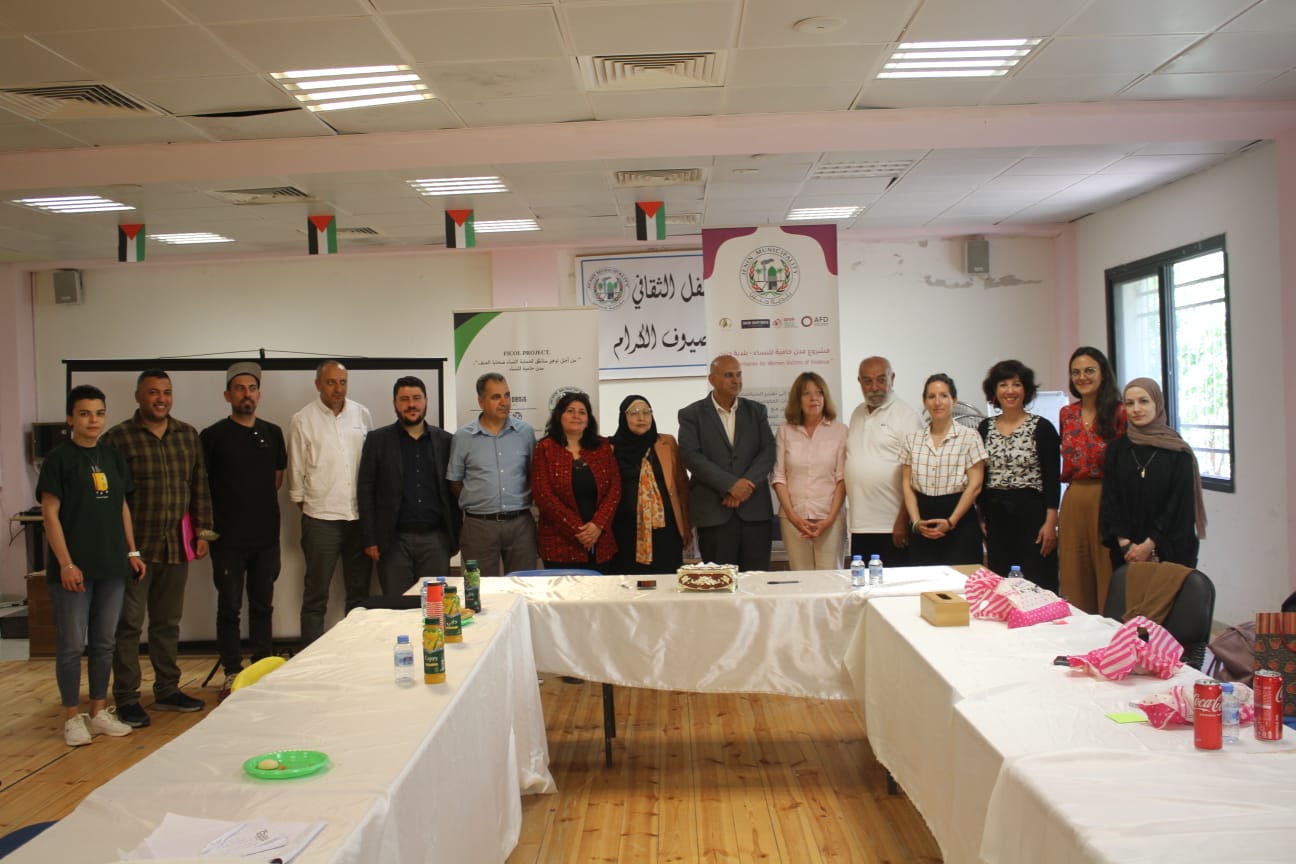

As part of the project "Territories protecting women victims of violence," the team from the Observatory of Violence against...



Within the framework of the project "Territories protecting women victims of violence", the city of Jenin, is the target of...
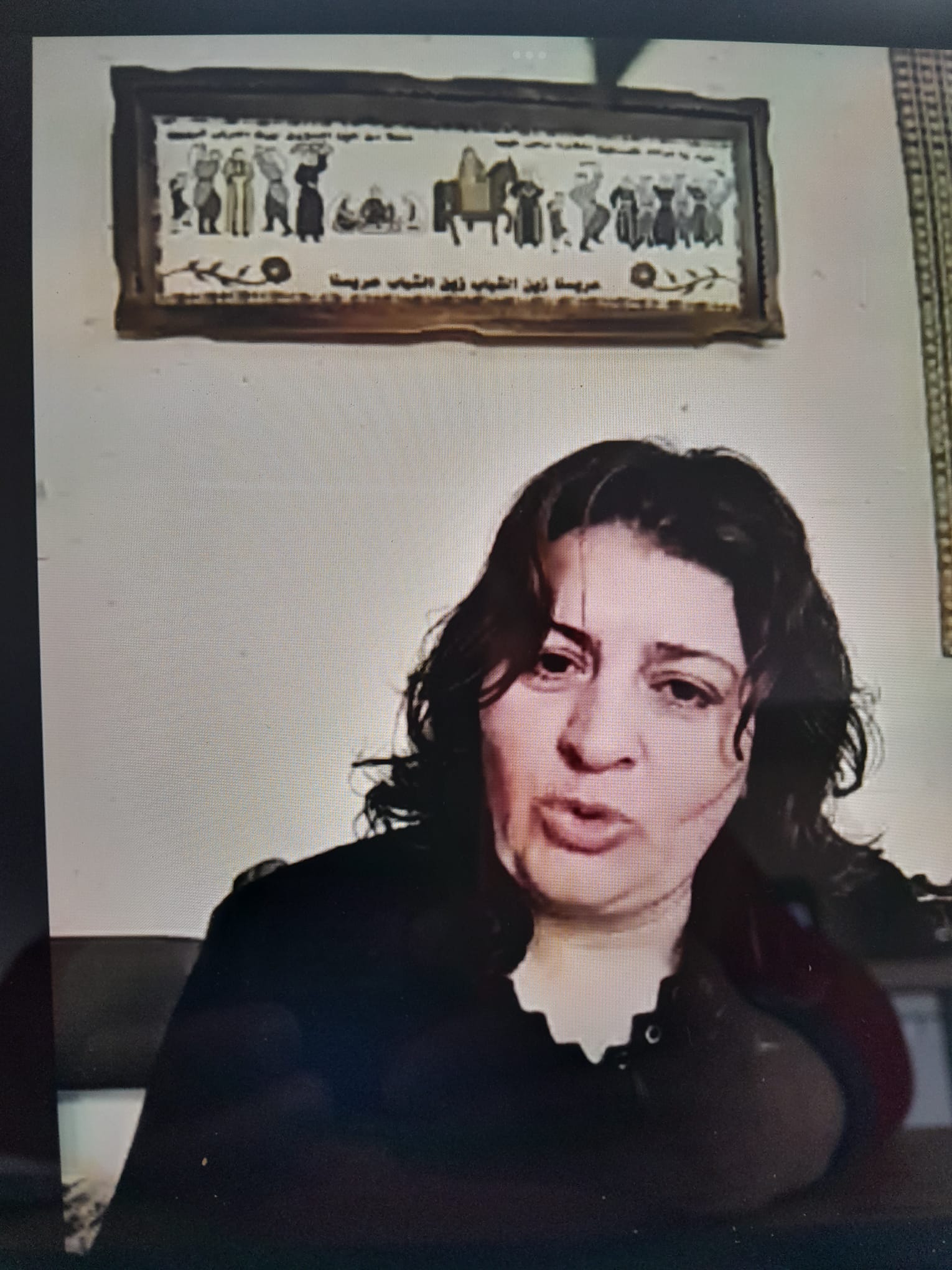

As part of the project "Territories protecting women victims of violence", the team of the International Observatory on violence...











As part of the project "Territories protecting women victims of violence", the International Observatory on violence against...



As part of the project "Territories protecting women victims of violence", the International Observatory on Violence against...


From November 8 to 17, the Observatory of Violence against Women hosted the 19th edition of Femmes du Monde in Seine-Saint-Denis....


In November 2023, Yadira Cortés Castillo, a Mexican activist and guest speaker at the 19th ”Femmes du Monde” in...
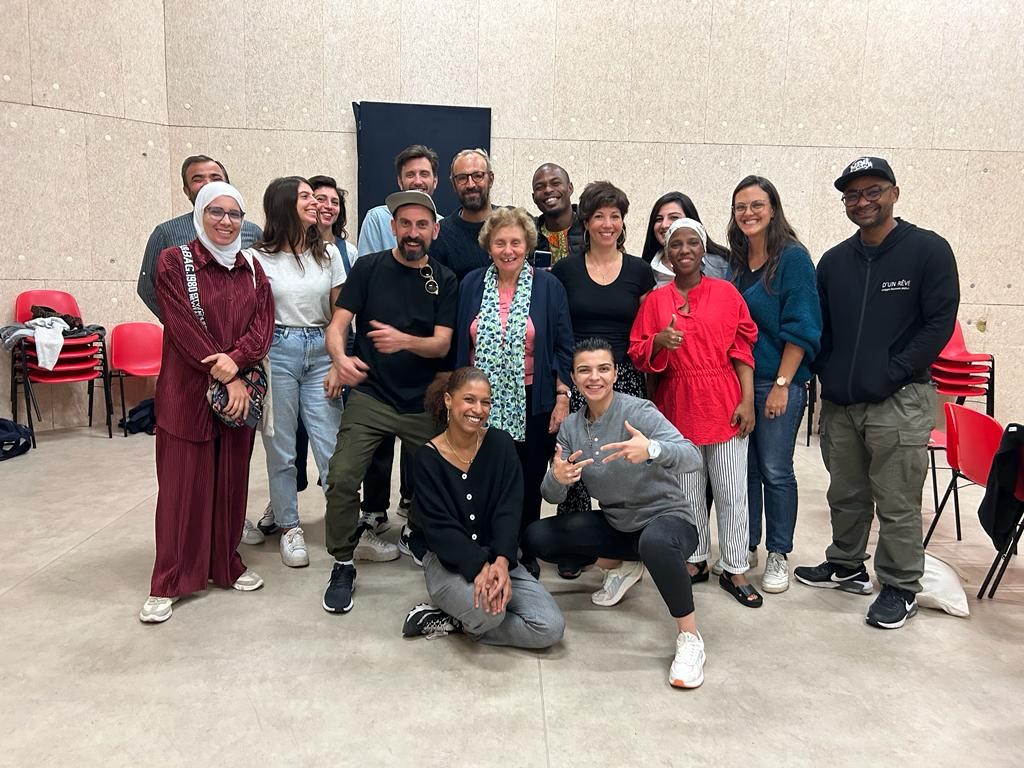

In September 2023, a delegation of facilitators from Djénine and Ngazidja came to Seine-Saint-Denis to participate in training...
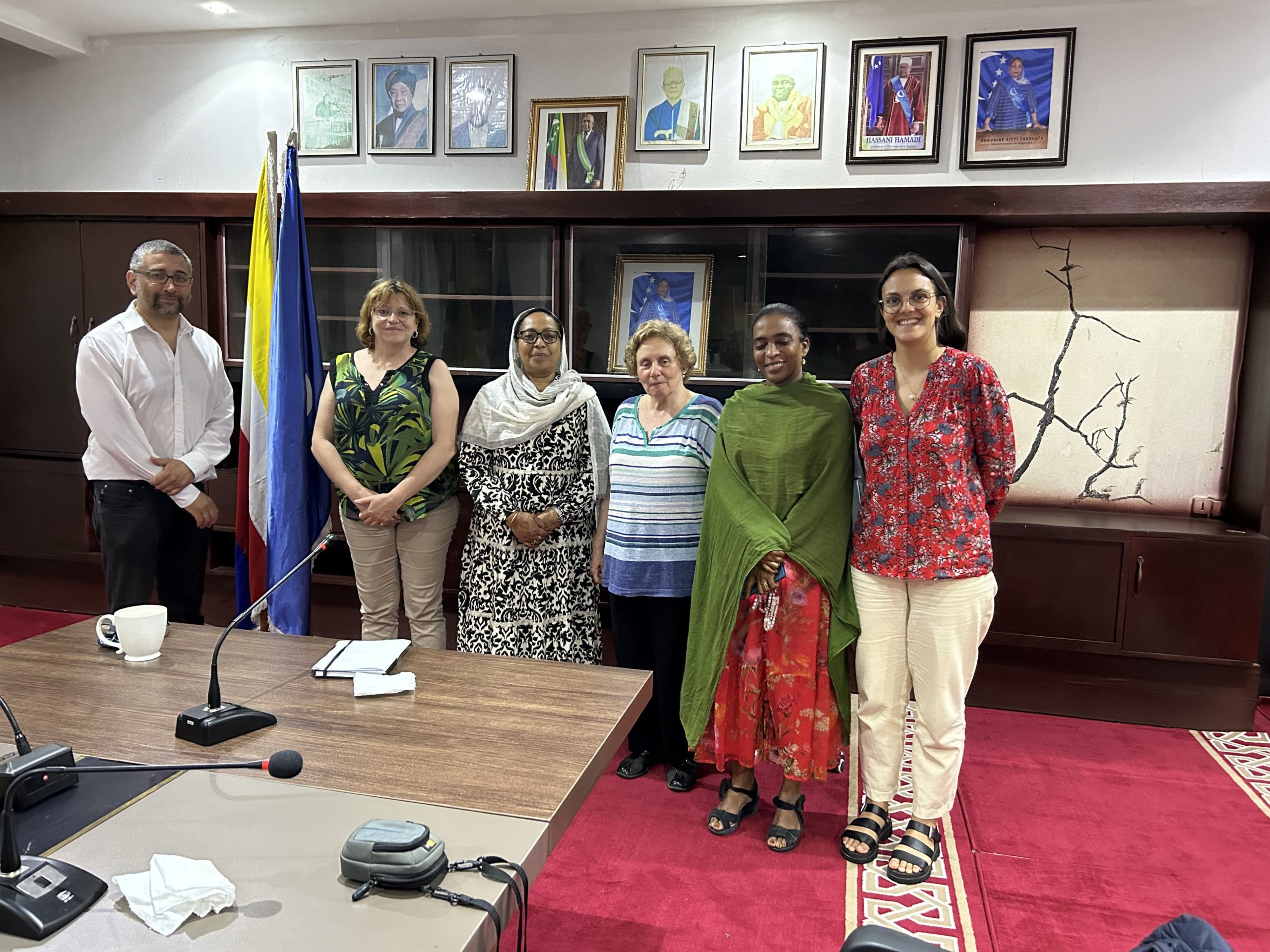

In June 2023, a delegation from Seine-Saint-Denis travelled for the second time to Ngazidja (Comoros), as part of the "...


In May 2023, a delegation from Seine-Saint-Denis visited the Palestinian Territories as part of the international programme...
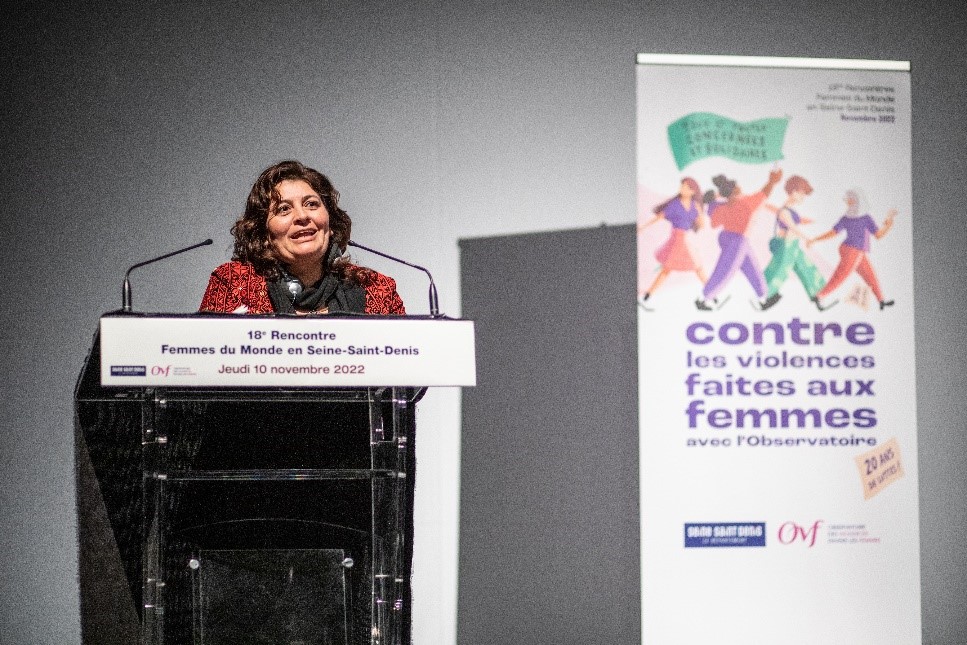

In the framework of the project “Territories protecting women victims of violence”, the International Observatory on Violence...
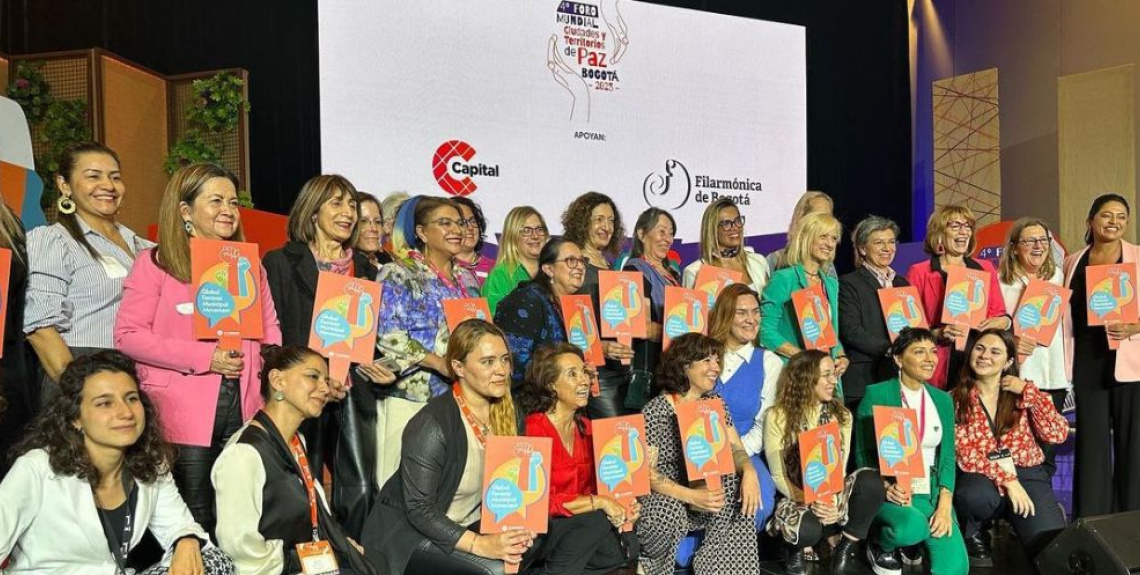

The coordinator of the International Observatory on Violence Against Women attended the 4th Forum of Cities and Territories for...




This is the fifth edition of the call for projects Agir IN Seine-Saint-Denis. This year, a new category of actions dedicated to...











To mark the 75th anniversary of the Universal Declaration of Human Rights, we are proud to join the Social Inclusion, Human...
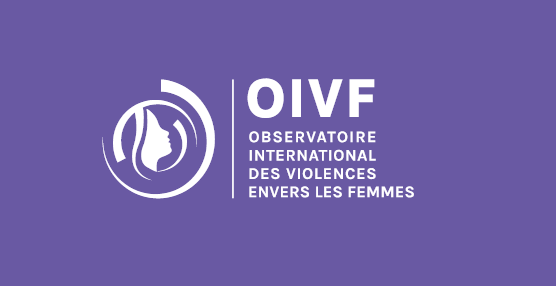

This day of mobilisation throughout the world is an opportunity to reflect on the situation of women, the progress made but also...
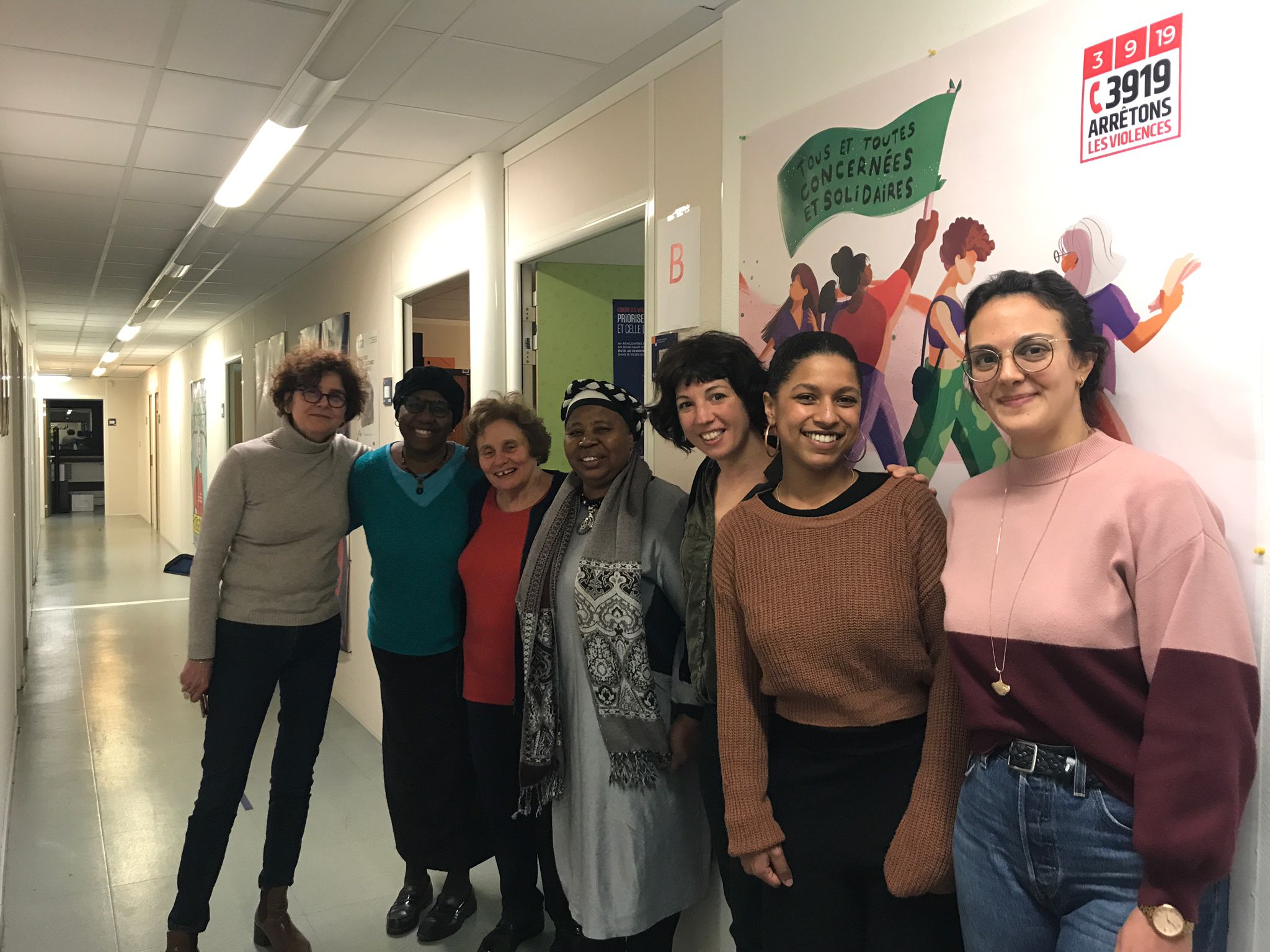

A look back at the meeting between the International Observatory on Violence against Women and Mrs. Bintou Founé Samaké...
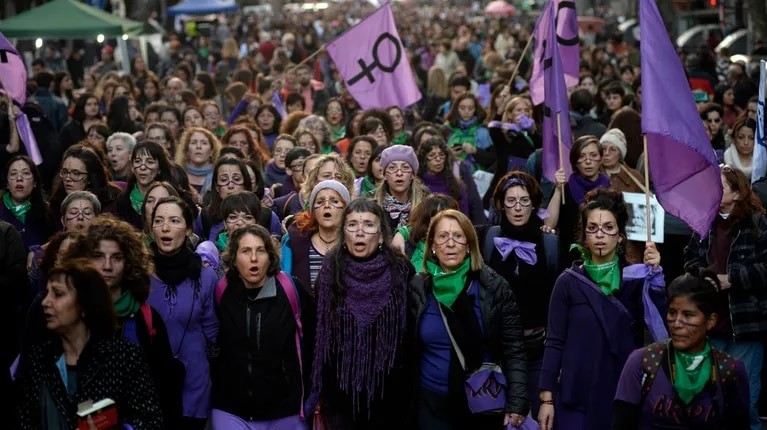

On the occasion of 8 March, it is essential to highlight the mobilisation of women in social movements, who are fighting to put...
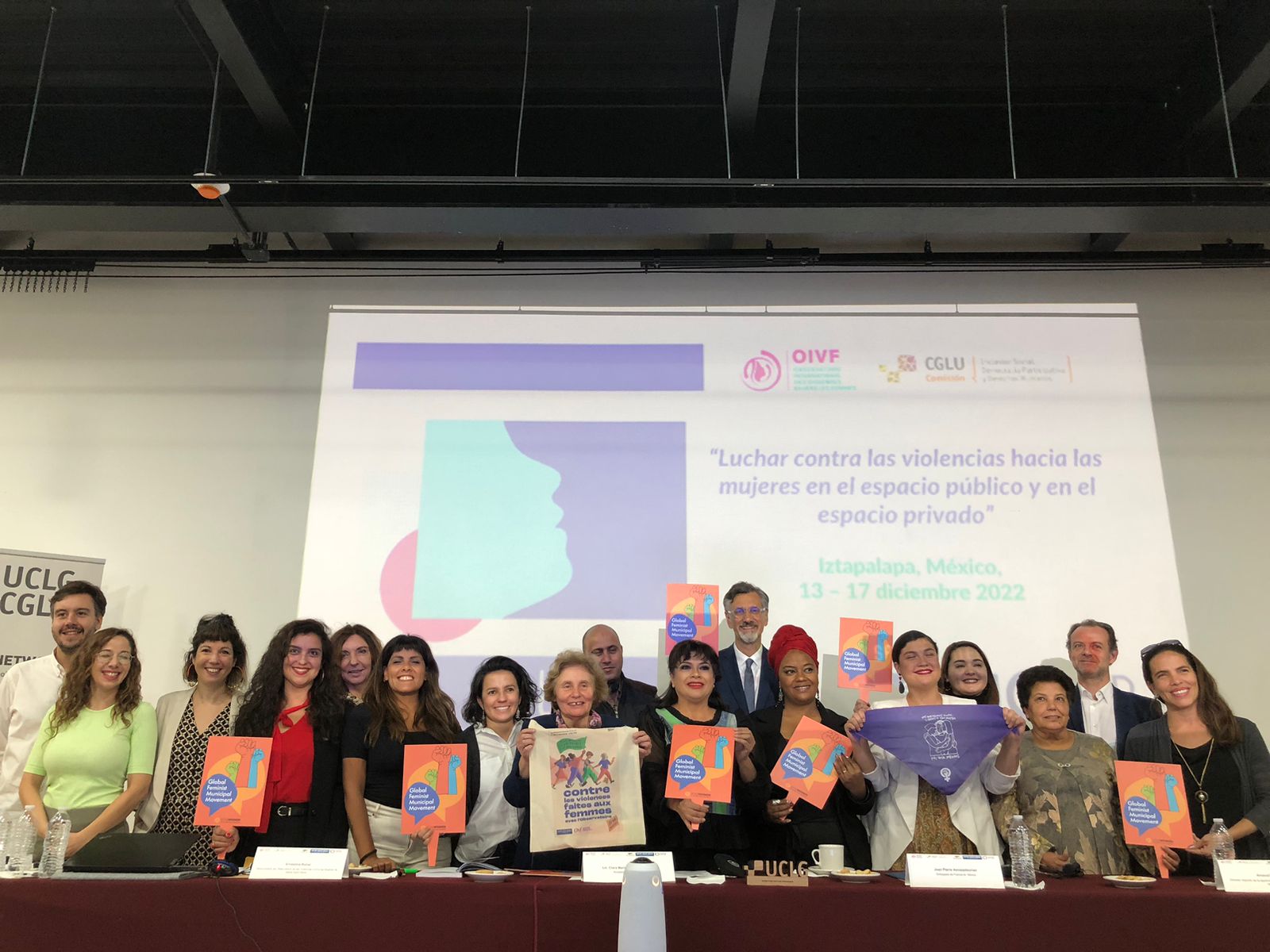

Return on the seminar "Fighting violence against women in public and private spaces" organised by the International Observatory...











February 6 marks the International Day of Zero Tolerance to Female Genital Mutilation.


From November 7 to 12, the Observatory of Violence against Women hosted the 18th edition of Femmes du Monde in Seine Saint Denis,...
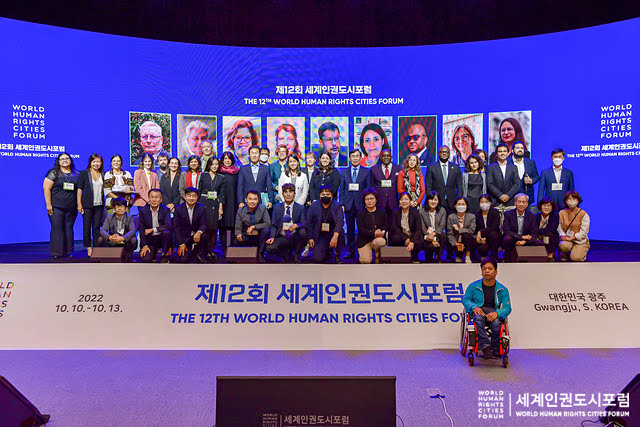

From 9 to 14 October 2022, the International Observatory on Violence against Women was in South Korea to participate in the World...











In the pursuit of the International Observatory program "Caring territories for women victims of violence", our delegation went...











On June 22, 2022, the Department of Seine-Saint-Denis and UGCL co-hosted a webinar on "Local and Regional Governments against...











Following the development of the international program "Territories caring for women victims of violence", a delegation composed...
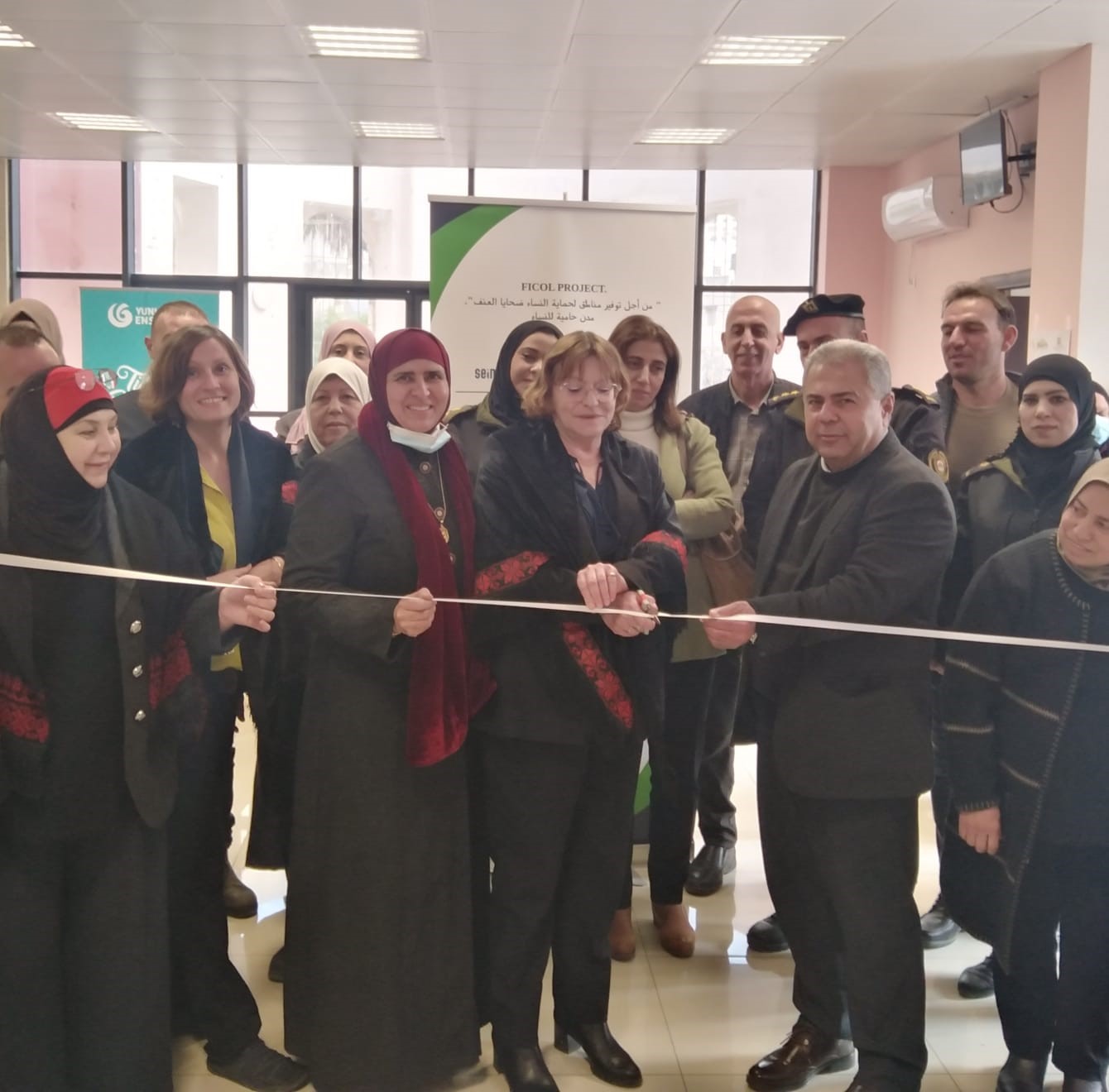

In February 2022, the city of Jenin (Palestine) inaugurate the office of the Observatory of Violence against Women.
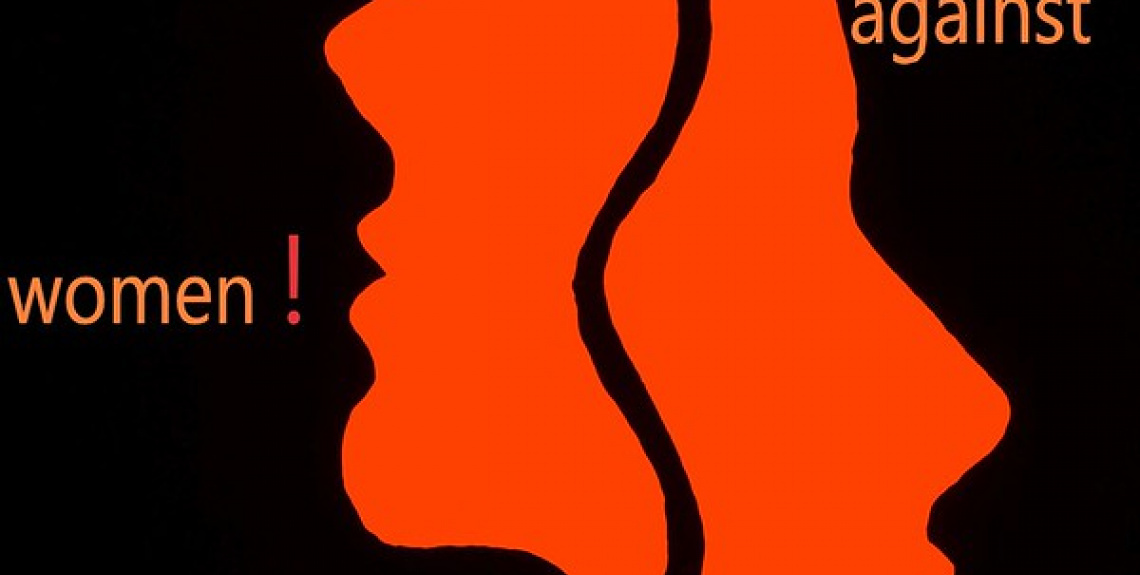

On this International Women’s Day, we would like to express our solidarity with all these women and their children.
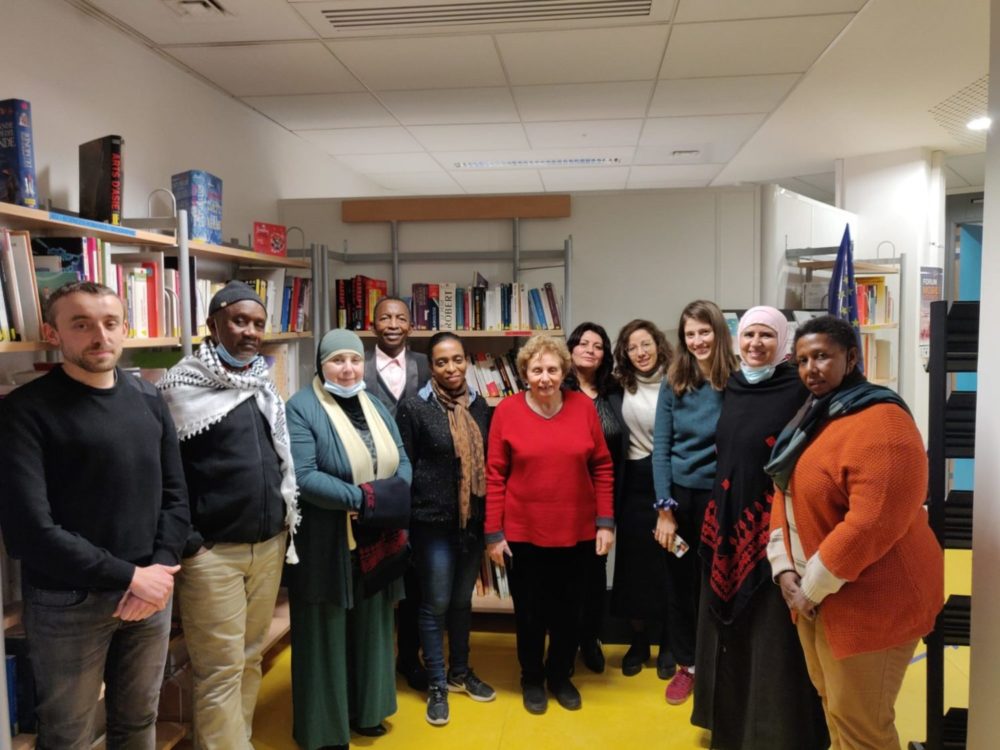

Meeting between the Observatory of violence against women of Seine Saint Denis, the island of Ngazidja (Comoros) and the...
No results were found for your search
Join the network
Elected officials, professionals and associations, international networks and organizations, researchers: we need you.






